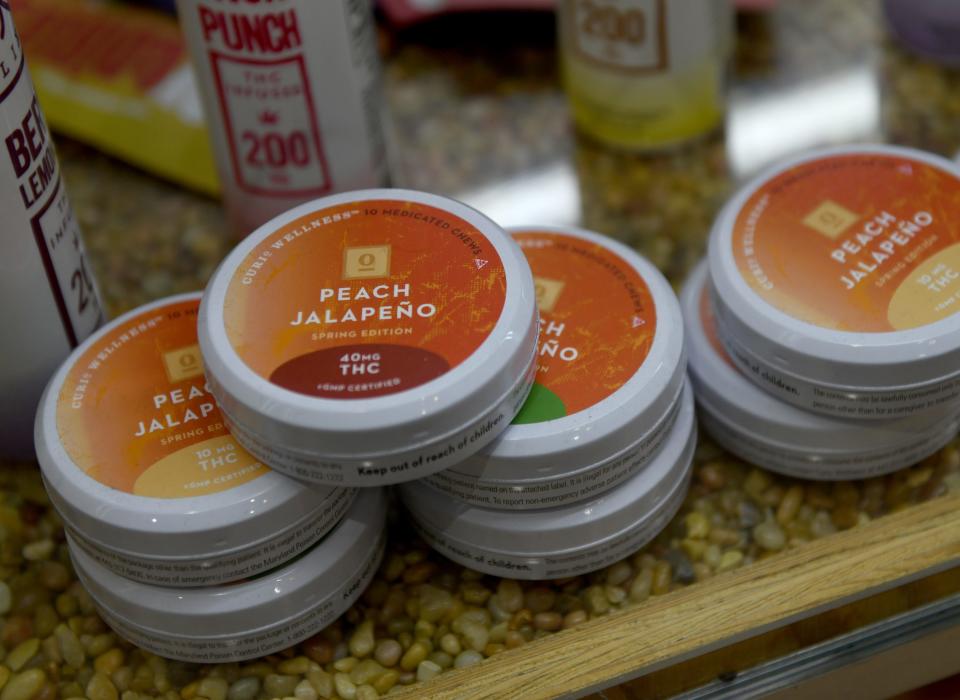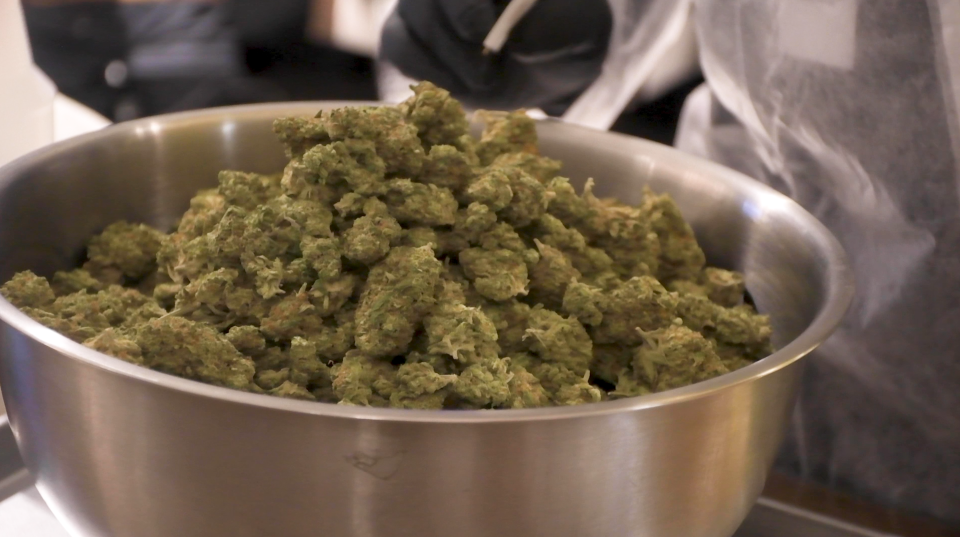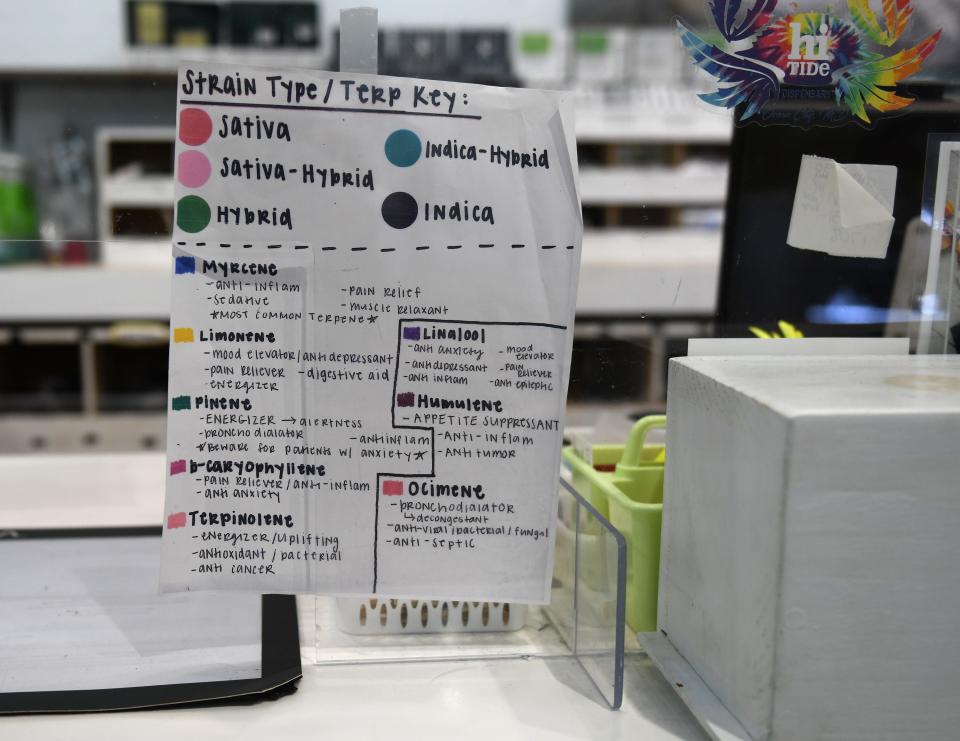Rep. Andy Harris takes aim at marijuana as DEA considers big change
Rep. Andy Harris, R-Md.-1st, is taking aim at federal efforts to lower the drug designation of marijuana as a schedule 1 substance to a schedule 3 on par with Tylenol with codeine.
In a recent letter to Administrator Anne Milgram of the Drug Enforcement Agency, Harris urged the law enforcement entity to "consider the true harms of marijuana" in a formal review that could remove it from the list of drugs like heroin, LSD, Ecstasy and Quaaludes.
According to the American Addiction Centers, schedule 1 drugs are those "with no current medical use with high potential for abuse and/or addiction," including those listed above. Schedule 2 drugs, like methadone, Demerol, Vicodin and OxyContin, are prescription drugs with "some medically acceptable uses, but with high potential for abuse and/or addiction." Schedule 3 drugs, like Ketamine, Suboxone and some steroids, are "low to moderate potential for abuse and/or addiction, but less dangerous than schedule 1 or 2."

Schedule 3 drugs can be obtained through prescription, but generally are not available over the counter. There are also schedule 4 and 5 drugs that have viable medical uses with little to no risk of abuse or addiction.
“As a physician and former scientist, it is vital that we make decisions based on established data, and the current HHS recommendation to reschedule marijuana lacks both substance and data," Harris said. "As I have long said, the American public deserves to know the effect modern marijuana has on the human body and I urge the DEA to consider the true harms of marijuana before making the final decision to reschedule it.”
More on Ocean City and pot Ocean City cracks down on marijuana consumption, bucking Maryland trend
Rep. Andy Harris: 'Marijuana's potential for abuse'

In a letter on Dec. 19, 2023, the agency informed certain members of congress that it is now conducting its official review of the Department of Health and Human Services’ recommendation to reschedule marijuana.
"The recommendation (to reassess marijuana) did not sufficiently examine the effect of daily marijuana use, a key indicator of addiction," Harris said in the letter. "The recommendation also failed to consider the public health damage caused by traffic fatalities due to individuals driving under the influence of marijuana. Notably, the Food and Drug Administration did not discuss the impact of marijuana use on pregnant women and children."
In Harris' recent letter, he argued the FDA also failed to compare marijuana’s potential for abuse to many other schedule 1 drugs, instead opting to hand-select drugs that appear more harmful.
Harris cited the only comparator substance in schedule 1 in the recommendation was heroin, with no inclusion of at least one schedule 1 hallucinogen, such as LSD or ecstasy. The review also compared marijuana to alcohol, a substance that is not controlled, but did not review any stimulants, such as Adderall or Ritalin in schedule 2.
"Additionally, the FDA review did not use the five-factor test that has been used to determine a drug’s 'currently accepted medical use' for the past thirty years. The five-factor test was determined to be an acceptable form of analysis by the United States Court of Appeals, District of Columbia in the 1994 case, Alliance for Cannabis Therapeutics v. Drug Enforcement Administration," the letter states.
More on recreational pot legalized With Maryland on verge of marijuana legalization, what could be next?
Harris concluded the letter by asking the Drug Enforcement Agency to respond to a series of questions around the move to reschedule marijuana by Friday, Feb. 16, 2024. They include:
Will the DEA abide by the legally binding treaty obligations related to drug scheduling as outlined in the Single Convention when determining marijuana’s schedule?
Does the DEA believe that our international treaty obligations can be met if marijuana is placed in schedule 3, despite the fact that NORML v. DEA (1977) ruled otherwise?
Does the DEA consider FDA’s new two-factor test an adequate method for determining a drugs currently accepted medical use? If so, why?
Will the DEA use the five-factor test to establish "currently accepted medical use" in its own scheduling review?
Does the DEA consider it acceptable to use studies that had inconclusive and/or not statistically significant findings as justification for marijuana having currently accepted medical use?
Does the DEA consider daily marijuana use, impacts on pregnancy and children, and effects of driving under the influence of marijuana necessary elements to consider when measuring marijuana’s abuse potential? If not, why?
Dr. Kevin Sabet, president of Smart Approaches to Marijuana, added additional testimony citing the lack of attention to scientific precedence.
“By rescheduling marijuana to schedule 3, the DEA would not only be breaking the law but also rejecting established science," Sabet said. "The DEA and the FDA have held long-standing opinions that marijuana is a dangerous psychoactive drug that has no medical purpose, confirmed as recently as 2016. The science since then has become more damning against marijuana.”
Legal recreational pot and local municipalities

Starting on July 1, Maryland allowed adults 21 or older to possess and consume up to 1.5 ounces of cannabis flower, 12 grams of concentrated cannabis or a total amount of cannabis products that does not exceed 750 mg THC. This amount is known as the "personal use amount." Individuals can now even grow personal amounts of the cannabis plant but cannot sell it.
That has led many local municipalities to address zoning and business licenses in their jurisdiction for dispensary owners. That now includes Salisbury as the City Council is considering such business regulations.
In areas like Ocean City, smoking continues to be prohibited in all public spaces, including the beach and Boardwalk, in the resort town.
The state has provided additional information on legal recreational marijuana usage.
More on the politics of pot smell Should marijuana smell be enough to stop, search vehicle? Maryland may revisit issue
This article originally appeared on Salisbury Daily Times: Move to reclassify marijuana draws ire of Rep. Andy Harris

